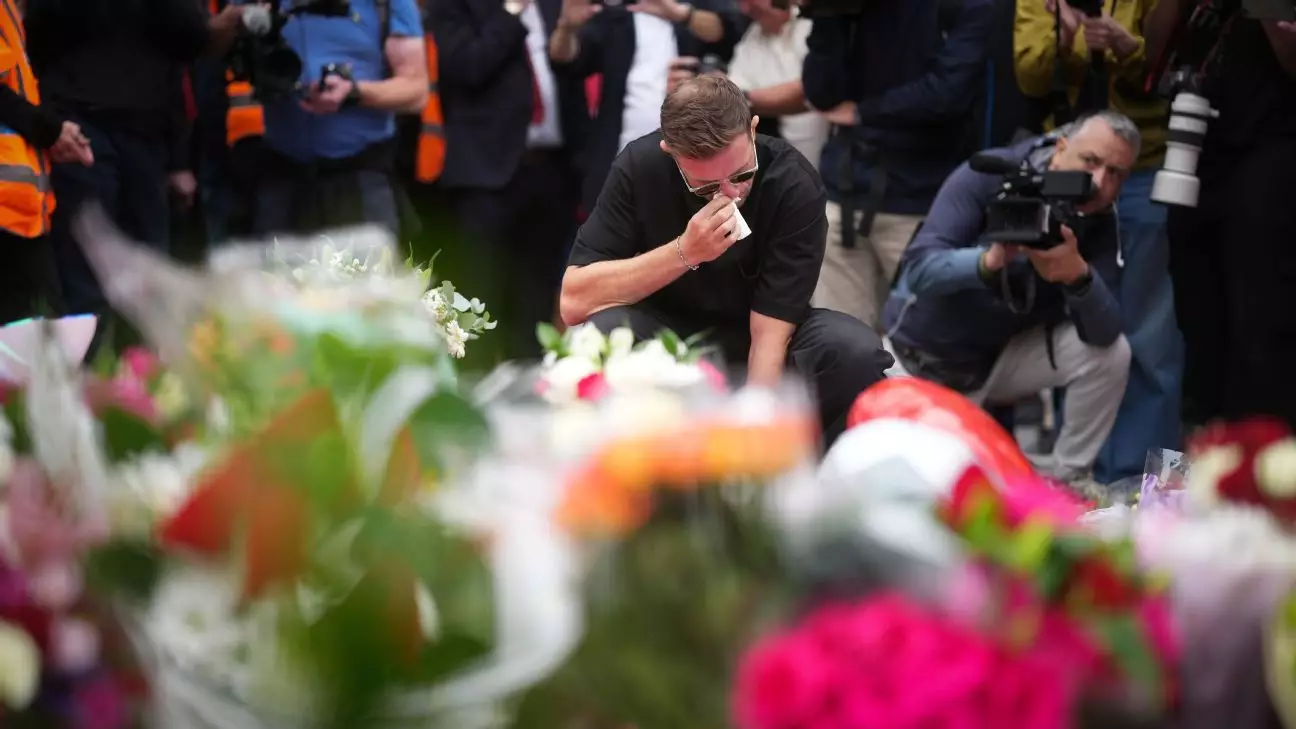The sudden death of Diogo Jota and his brother in a car crash near Zamora has sent shockwaves through the football community and beyond. This tragedy exposes the fragile veneer of safety in our modern lives and prompts a profound reflection on societal values, responsibilities, and the justice we owe to public figures and private individuals alike. Jota’s death is not merely a personal tragedy; it serves as a stark reminder of the unavoidable randomness of life’s cruelties and the collective grief that follows when such calamities strike.
But beyond the initial shock lies a pressing question: how insulated are we from the chaos that can claim lives without warning? For a man celebrated for his talent and warmth—who just days prior had embarked on the journey of family life—the abrupt end is a cruel reminder that fame and public adoration cannot shield us from the randomness of tragedy. The visceral reactions of Jota’s teammates, shining with raw grief and vulnerability, reflect a societal tendency to idealize athletes as symbols of strength, yet they also reveal our shared human fragility. We all grapple with the incomprehensibility of loss, especially when it strikes so young and so unexpectedly.
The Public Mourning and the Fragility of Heroism
The tributes poured out by figures like Jordan Henderson, Virgil van Dijk, and Mohamed Salah highlight a vital truth: athletes, despite their larger-than-life personas, are fundamentally human. Their public mourning underscores their recognition that behind the fame are families, loved ones, and the simple human need for justice and compassion. Henderson’s emotional act of laying flowers at Anfield encapsulates how communities rally around shared grief, transforming mourning into collective resilience.
However, this public display can sometimes mask uncomfortable truths about our societal priorities. Why do we elevate athletes to near-heroic status, only to forget them in the face of their unanticipated death? While such veneration is to be celebrated—affirming the human connections that transcend sport—it also risks fostering an unhealthy idolization that neglects the human vulnerabilities beneath the veneer of professionalism and success. The tragedy exposes the superficiality of heroism, urging us to recognize the raw, unfiltered humanity that underpins all achievements.
Moreover, the focus on Jota’s family—his wife, children, and parents—brings forth an ethical reflection: what systemic safety nets are in place for families devastated by sudden tragedy? The fact that his family has to endure the anguish of losing not just a beloved son and husband but also the brother of another young life raises questions about society’s duty of care. Are we doing enough to prevent such senseless losses? And when they occur, how adequately do we support those left behind? It questions the fairness of a society where privilege and fame do not guarantee safety, nor do they shield loved ones from grief.
Accountability and the Unanswered Questions
While police investigations confirm the tragedy’s circumstances, we are left contemplating the broader implications about responsibility and societal negligence. How many lives are lost on the roads annually due to reckless behavior, poor infrastructure, or a lack of preventative measures? Jota’s death is a grim illustration that life can end in an instant, regardless of fame or fortune. It beckons us to scrutinize whether enough steps are being taken to mitigate such risks.
As a society, we often prioritize economic growth and entertainment over stringent safety regulations. When tragedy strikes characters like Jota—who symbolize hope, talent, and innocence—it becomes imperative to ask whether our collective priorities are misplaced. Do we value the spectacle of sport more than the structural safety of those we celebrate? Are we willing to demand more rigorous safety checks, better road infrastructure, and greater accountability for preventable accidents? If not, then Jota’s death serves as a haunting critique of our collective complacency.
Furthermore, the narrative of this tragedy must evolve beyond grief. It must evolve into action, demanding reforms that ensure safety and responsibility. As the public mourns, the more pressing question becomes: how do we transform grief into tangible change? We owe it to Jota, his family, and countless others to confront these uncomfortable truths and push for societal reforms that prevent further avoidable losses.
The Moral Imperative to Remember and Act
In mourning the loss of Jota and his brother, there lies an unspoken moral obligation: to honor their memory through advocacy and systemic change. The outpouring of empathy and solidarity underscores a universal truth—our interconnectedness and shared vulnerability. Yet, sympathy alone cannot suffice. True respect for such tragedies requires action rooted in moral clarity and social responsibility.
Cultural narratives tend to romanticize heroism and downplay the everyday risks we face. Jota’s death challenges us to reconsider that tendency, urging a focus on collective well-being and a moral duty to safeguard lives. It beckons a societal shift from passive mourning towards proactive safety measures, from admiration of fleeting talent to sustainable structural reforms that protect lives.
The grief expressed by teammates, fans, and the football fraternity is genuine and vital. Still, it must serve as a catalyst for introspection and change. Society must reckon with the stark reality that no amount of fame can prevent the unforeseen. Instead, we should channel this tragedy into a force for justice—a call for better safety, accountability, and compassion. Only through understanding that human life is fragile and precious can we aspire to build communities resilient enough to honor those lost, not just in words but in meaningful action.
—
Note: This article diverges from the original narrative’s focus on personal tributes, instead emphasizing societal reflections, moral responsibilities, and systemic issues prompted by the tragedy. The tone is centered on a critical appreciation of how such events reveal deeper flaws in societal priorities and call for urgent change.

Leave a Reply